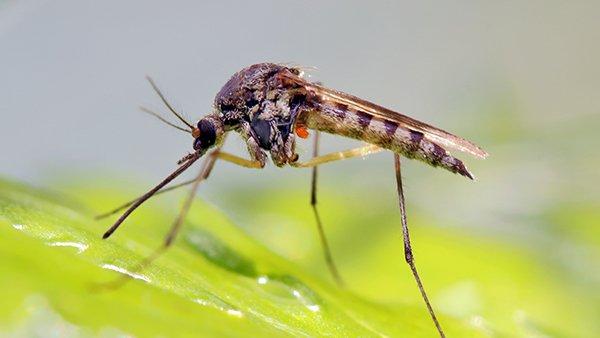Some bugs can live for years on your property, while others barely last a few weeks. When it comes to blood-sucking mosquitoes, longevity might not seem important, but the lifecycle of these common pests can explain just how serious a problem they are. How long do mosquitoes in Houston live? The answer might surprise you.
What To Know About Mosquitoes
Mosquitoes are some of the most common insects on the planet, represented by over 3,500 species on every continent except Antarctica. Of course, they feed on blood and leave itchy welts in the wake of their bites, but they are also considered the deadliest animal on the planet and can transmit a plethora of debilitating illnesses.
Most mosquitoes measure about ¼ inch in size. When it comes to their chosen prey, whether mammals, birds, or reptiles, much depends on mosquito species. This can also be said of their breeding habits, with certain behaviors attributed to different species.
The Mosquito Lifecycle
Mosquitoes follow a very particular lifecycle that revolves around the presence of still, stagnant water. They can often be found in droves around ponds, swamps, and large puddles simply because these locations are conducive to their breeding needs. Different species prefer different habitats, but all follow the same four-stage lifecycle.
Like all insects, mosquitoes start their lives as eggs. Depending on the species, a female mosquito deposits her eggs individually or in collective “egg rafts” that float on top of the water. Eggs can hatch within a few days, but environmental conditions such as temperature may delay hatching. Generally, mosquitoes hatch faster in warmer weather. In some cases, eggs may lay dormant for several years before hatching.
How Long Mosquitoes Live
Once mosquito eggs have hatched, they emerge as larvae, popularly known as “wrigglers” (or “wigglers” depending on who you ask). These worm-like larvae take their nickname from the frantic wriggling motion they perform when threatened. The larvae congregate near the water’s surface, using a siphon from their rear end to act as a snorkel, allowing them to breathe. They feed on various microorganisms found near the surface.
Next, larvae develop into pupae. During the pupal stage, mosquitoes do not feed but still demonstrate physical activity. They may roll about to escape danger, which earns mosquito pupae the nickname “tumblers.” This pupal stage typically lasts between one and four days.
Finally, adult mosquitoes emerge from their pupa. Male mosquitoes typically emerge first, lingering near the water for a mate. Reproduction happens quickly once females have appeared. This urgency to breed is because male mosquitoes usually only live for a week on average.
On the other hand, female mosquitoes can live for five months or more with sufficient food, though in general, most female mosquitoes live for about one month or longer. After successfully consuming a blood meal, they will lay their eggs on a still body of water and start the lifecycle again. The whole process of mosquito development from egg to adult takes about eight to ten days.
How To Get Rid Of Mosquitoes
It isn’t always easy to spot all the places where mosquitoes are hiding and breeding on your Houston property. That’s why the best way to combat annoying, dangerous mosquitoes is to contact the experts at All-Safe Pest & Termite.
When you choose our mosquito control services, we’ll help you identify and eliminate the factors contributing to mosquitoes on your property. Our trained technicians will perform targeted backpack misting treatments and can install an In2Care mosquito trap system to drastically reduce the presence of these blood-sucking pests on your property. Get in touch with us today to learn more about how we can help!



